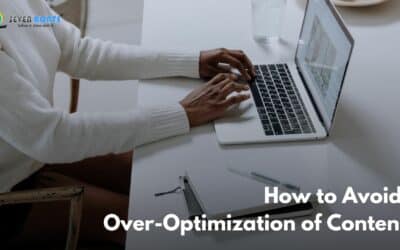
Introduction
How to deal with unstable rankings after merging or splitting a website? There are times when you want to merge two or more websites into a single one for convenience, both yours and the end users’. There are also times when you want to split your existing larger website into smaller sites to handle matters in a better way.
For example, you may have 3 sites in 3 different languages for your customers. However, on analysis, you find that these three sites are not feasible to maintain. You want to merge them into a single one. Another example could be that you sell 3 different products and each has several sub-sections. Having them under one umbrella is confusing the users. So, you want a site each for each product.
Once you do that, your next question will be, how will this affect my website rankings on Google’s SERPs?
The answer is, your rankings will be affected and they will remain unstable for months! That is the answer provided by John Mueller on Google Webmaster Central hangout zone in response to a question put forward by a user. Mueller feels that such a move, of merging or splitting websites, is actually ‘unrealistic’ and will pave the way for instability in the SERP ranks for some time.
Here’s the full transcript of what Mueller said on the video in response to this question:
“I think what you’re doing is splitting an existing website and kind of taking part of that content and putting it on a different website.
I think the main thing that you need to be aware of is that when you split a website, or when you merge a website, it’s a lot harder for us to process that compared to a normal site. So that’s something where I would go with the expectation that it’s going to take a bit of time for everything to settle down, and it’s not absolutely clear what the final state will be.
If you split out some content from one website and put it on a new website, does that mean the new website will be getting just as many clicks and impressions as the old website got? Probably not, there will probably be a difference. If you’re also adding new content to the new website then you will see differences anyway. I think just from an expectations point of view it’s worth keeping in mind that this is not a trivial change, for a larger website at least. So you need to be a bit patient.
How to Avoid a Drop in Rankings after a Website Migration
With regards to what you need to do there is, primarily, to make sure you have redirects set up for the individual pages from the old one to the new one. With regards to internal linking on the old website and the new website you can kind of have that covered as well. So, for example, if someone linked to one of those pages internally within the website then make sure that internal link points to the new website instead. So then we really have all of the signals that tell us “this content piece here moved to this website and we should index it as this website.”
When it comes to dealing with unstable rankings after merging or splitting a website, there are a few strategies you can employ to mitigate the impact. Here are some tips:
- Expect Unstable Rankings: It’s important to understand that when you merge or split a website, your search rankings may become unstable for several months. This is a common occurrence, as confirmed by Google’s John Mueller.
- Content Consolidation: To help stabilize your rankings, consider updating, removing, or merging content. This can help avoid split ranking signals and provide users with a better experience, according to Search Engine Land.
- Proper Redirects: Implement proper 301 redirects when merging or splitting websites. This ensures that search engines and users are redirected to the appropriate pages, minimizing negative ranking effects.
- Backlink Audit: Conduct a backlink audit to identify any broken or irrelevant links. Fixing these issues can help maintain or improve your rankings.
- Remove Indexing Restrictions: Check your robots.txt file and remove any indexing restrictions that may hinder search engine crawling and indexing of your website’s pages.
- Optimize On-Page SEO Elements: Review and update title tags, meta descriptions, headers, and other on-page elements to align with your new website structure. This helps search engines understand and rank your content accurately.
- Update Internal Links: Verify that internal links within your website are updated to reflect the new structure. This ensures proper navigation for both users and search engines.
- Monitor Indexing: Keep track of how search engines are indexing your website after migration. Make sure all important pages are being indexed properly and adjust if necessary.
- Monitor Traffic and Rankings: Keep a close eye on your website’s traffic and rankings after migration. If you notice any significant drops, investigate and address the issues promptly.
Conclusion
It’s important to note that these strategies are not foolproof and may not guarantee immediate stability in rankings. SEO efforts require ongoing monitoring, analysis, and adaptation. Consulting with an experienced SEO professional or agency can provide further guidance tailored to your specific situation.
So I think that’s the primary thing from a technical point of view. To make the new website multilingual I think that’s a great thing to do in any case, and I would just make sure that you have hreflang set up properly for those pages. Usually that’s less complicated if you don’t have a lot of different language versions, but in general that’s something that’s kind of standard nowadays. A lot of people have those kind of things set up.
I think this is a good move, you just have to be patient.”








0 Comments